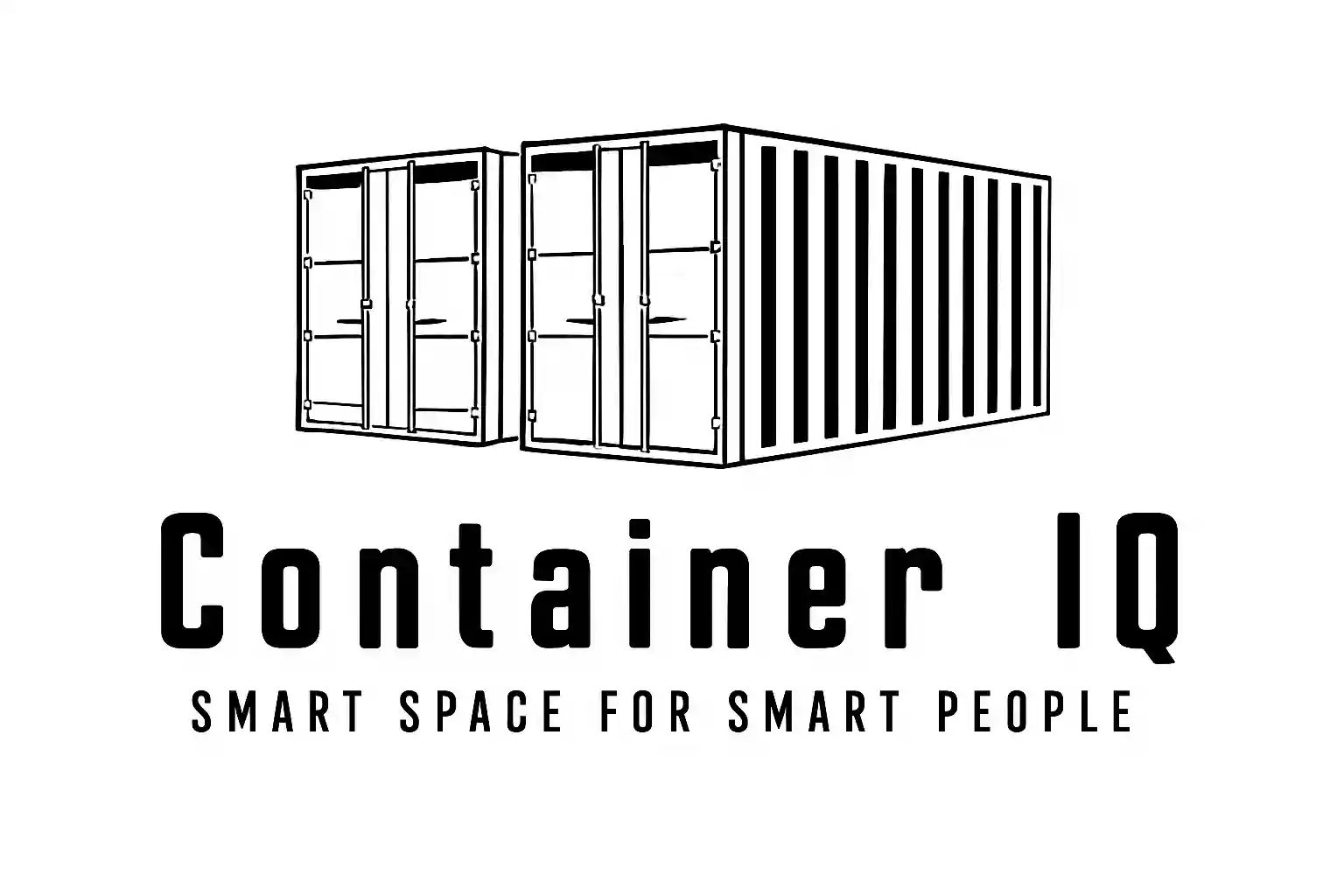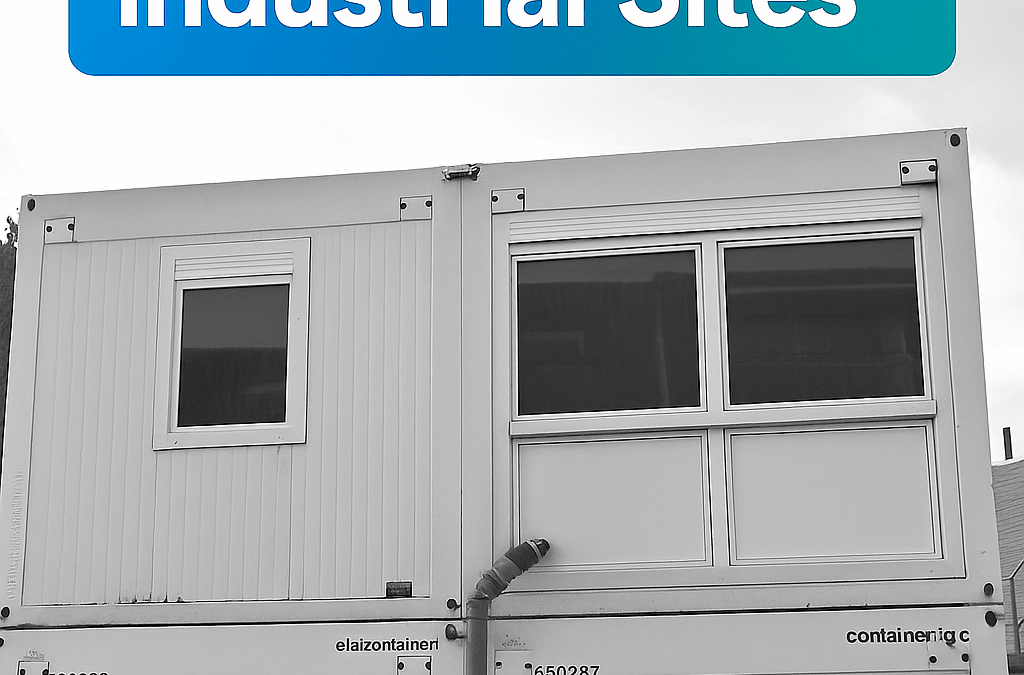On an industrial site—be it a manufacturing plant expansion, a sprawling logistics hub, a renewable energy farm, or a large-scale fabrication yard—the rhythm of productivity is paramount. The constant hum of machinery, the precise logistics of material handling, and the coordinated efforts of skilled personnel all depend on one critical nerve center: the site office.
This is not just a place for paperwork. It’s the command post for safety briefings, the hub for client meetings, the secure repository for sensitive schematics, and the sanctuary for focused planning. In these demanding environments, a traditional construction trailer or a makeshift setup in an existing building often falls short. They lack the security, durability, and professional infrastructure that industrial projects demand.
This is where container offices for industrial sites emerge as the undisputed superior solution. More than just a trend, they represent a strategic operational decision that enhances security, efficiency, and comfort while protecting the bottom line. This guide will delve into why these robust, portable units have become the gold standard for industrial management and how to leverage them for your next project.
Why Industrial Sites Have Unique Demands
Industrial environments are inherently different from standard commercial construction sites. The challenges are more pronounced, making the choice of site office critically important.
Scale and Remoteness: Projects are often large and may be located on greenfield sites far from urban infrastructure, requiring self-sufficient solutions.
High-Value Assets: Sites contain expensive machinery, raw materials, and specialized equipment, necessitating superior security.
Complex Operations: Management must oversee multiple moving parts simultaneously, from workforce management and safety compliance to supply chain coordination and client updates.
Harsh Environmental Conditions: Sites generate significant dust, debris, and noise and are exposed to the elements year-round.
Stringent Safety and Compliance Protocols: Strict regulations require proper documentation, secure record-keeping, and dedicated spaces for safety meetings and training.
A standard site trailer often buckles under these pressures. Container offices, engineered for far greater challenges, are built to not only withstand them but to excel.
The Unbeatable Advantages of Container Offices for Industrial Applications
1. Superior Durability and Longevity
Industrial sites are rough. Shipping containers are constructed from weathering steel (COR-TEN steel) designed to withstand the harsh conditions of ocean transport. They are:
Impact-Resistant: Can withstand incidental contact with equipment and falling debris better than wood or aluminum-sided trailers.
Weatherproof: Impervious to rain, wind, snow, and dust infiltration when properly sealed and insulated.
Corrosion-Resistant: Treated steel resists the rust and decay that can plague other temporary structures.
2. Enhanced Security and Asset Protection
This is arguably the most significant advantage for industrial sites. A container office is a fortress.
Structural Security: Its steel body is extremely difficult to breach without heavy cutting tools, deterring theft of computers, tools, instruments, and confidential data.
Locking Systems: Can be fitted with high-security lockboxes, deadbolts, and even electronic access systems to control entry.
Peace of Mind: Allows managers to leave the site knowing that critical project documents, employee records, and high-value portable assets are secure overnight and on weekends.
3. Mobility and Operational Flexibility
Industrial projects evolve. Production lines move, and focus shifts from one part of a large site to another. A container office offers unparalleled flexibility.
Relocatable: Can be easily moved by a forklift or crane to a new, optimal location as the project progresses, providing a constant command center presence right where it’s needed.
Modular Scalability: Start with a single 20ft office. Need a dedicated QC lab, a larger break room, or secure storage? Simply rent additional units and configure them side-by-side or even stack them (with engineering) to create a multi-story complex without sacrificing valuable yard space.
No Permanent Footprint: Since they are not permanent structures, they typically avoid complicating property tax assessments and can be removed easily once the project is complete.
4. Cost-Effectiveness and Financial Predictability
Renting a container office is a smart financial move for capital-intensive industrial projects.
Preserves Capital: Avoids a large upfront purchase cost, freeing up capital for core project expenses like equipment and payroll.
Operational Expense (OpEx): The rental fee is a predictable, monthly operating expense, simplifying accounting and budgeting.
No Maintenance Costs: Repairs and maintenance are typically the responsibility of the rental company, eliminating unexpected costs.
Utility Efficiency: Modern spray foam insulation and efficient HVAC systems minimize energy consumption for heating and cooling, reducing ongoing utility expenses.
5. Rapid Deployment and Immediate Productivity
Time is money, especially when gearing up for a major project. Container offices drastically reduce downtime.
Quick Fabrication: While customizations take time, standard units are often available for immediate delivery.
Fast Setup: Once on a prepared foundation (e.g., compacted gravel, concrete piers), the office can be connected to power and become operational within hours.
Faster Project Start: This speed enables management to be on-site and productive from day one, accelerating the entire project timeline.
6. Professional Image and Client Confidence
First impressions matter, even on an industrial site. A clean, organized, and professional office space:
Projects Competence: Impresses clients, investors, and inspectors, building confidence in your management capabilities.
Enhances Morale: Provides a comfortable, dedicated space for employees, improving focus and job satisfaction away from the noise and dirt of the main site.
Key Features to Specify for Your Industrial Container Office
Not all container offices are created equal. For an industrial environment, insist on these features:
Structural & Exterior
Size: 20ft (for 2-3 person) or 40ft (for 4-8 person) are standard. Consider a 40ft “high-cube” model for extra ceiling height and airiness.
Insulation: Closed-cell spray foam insulation is mandatory. It provides the highest R-value, creates an air-tight seal against dust and moisture, and adds structural rigidity.
Cladding: Interior steel or aluminum wall panels are durable and easy to clean compared to drywall.
Windows & Doors: Double-paned windows for thermal and acoustic insulation. A steel security door and a compliant emergency exit door.
Exterior Coatings: Industrial-grade paint finishes resist fading and chemical exposure.
Climate Control
HVAC System: A robust, properly sized mini-split system is ideal for energy-efficient heating and cooling. Ensure it has a high MERV-rated filter to keep industrial dust out of the interior.
Interior Layout & Ergonomics
Built-In Workstations: Maximize space with sturdy, wall-mounted desks.
Secure Storage: Lockable cabinets and shelving for tools, parts, and documents.
Durable Flooring: Industrial-grade vinyl plank (LVP) or epoxy flooring stands up to heavy foot traffic and dirt.
Task and Ambient Lighting: Bright LED lighting to reduce eye strain during detailed work.
Electrical & Data Infrastructure
Dedicated Circuits: Sufficient power for computers, monitors, coffee makers, microwaves, and tool battery chargers.
Data Conduits: Pre-installed conduits for Ethernet and phone lines.
Exterior Connections: A weatherproof external power inlet for easy connection to a generator or temporary power pole.
Industrial-Specific Options
Explosion-Proof Fixtures: For sites with flammable atmospheres.
Air Filtration Systems: Enhanced systems for exceptionally dusty environments.
Integrated Tool Cribs: A section with shelving and a counter for issuing small tools and parts.
Viewing Windows: Large, panoramic windows for observing floor operations without leaving the office.
The Rental Process: From Inquiry to On-Site Operation
- Needs Assessment & Quoting: Contact a specialized provider (like Container-IQ.com). Discuss project duration, size requirements, number of occupants, and necessary features to get a detailed quote.
- Site Preparation (Client Responsibility): This is crucial. The site must have:
- Level, Stable Ground: A compacted gravel pad is most common. Concrete piers or a slab are also options.
- Clear Access: A route wide and strong enough for a heavy truck and possibly a crane.
- Utility Planning: A plan for power (generator or temporary pole connection).
- Permitting: While often classified as temporary equipment, always check local municipal regulations regarding permits.
- Delivery & Installation: The rental company will deliver and carefully place the unit on the prepared foundation using a truck-mounted winch or crane.
- Connection: Your team or a hired electrician will connect the unit to the power source. A walk-through ensures all systems are functional.
- End-of-Lease: Schedule the pick-up. The rental company will collect the unit, leaving the site clear.
Beyond the Main Office: Other Essential Container Rentals
An industrial site often needs more than just a management office. The modular nature of containers allows for a complete, tailored site solution:
Breakrooms & Welfare Units: Improve morale and compliance by providing a clean, climate-controlled space for breaks and lunches, away from the production floor.
Dedicated Storage Containers: Secure, weatherproof storage for sensitive materials, expensive tools, and archived records.
Change Rooms & Sanitation Facilities: Units equipped with toilets, showers, and locker rooms to support workforce hygiene and comfort.
Quality Control Labs: Clean, vibration-dampened, and climate-stable environments for precise measurement and testing.
On-Site Medical Stations: First-aid stations or dedicated rooms for occupational health monitoring.
The Smartest Investment for Your Industrial Site’s Success
On an industrial site, every decision is weighed against its impact on safety, efficiency, schedule, and budget. A container offices are a rare solution that optimizes all four. It is not merely a convenience; it is a strategic tool that provides the durable, secure, and professional nerve center your complex operation requires.
By choosing a rented container office, you invest in enhanced security for your assets, a productivity boost for your team, and the flexibility to adapt to your project’s evolving needs—all while maintaining strict control over your budget. It is a clear demonstration of intelligent, forward-thinking site management.
Ready to command your industrial site with confidence? Contact the experts at Container-IQ.com today to discuss your specific project requirements and get a quote for a container offices rental solution designed to withstand the toughest industrial challenges and drive your project to success.

